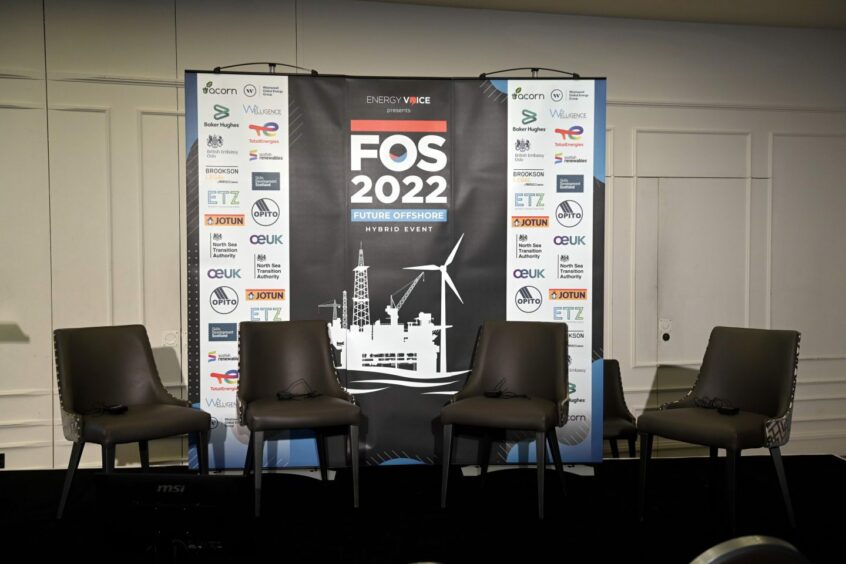
This year’s Future Offshore (FOS) event in Aberdeen today kicked off with a keynote speech from the UK’s ambassador to Norway.
Richard Wood discussed the country’s progress towards net zero goals, citing that the UK’s emissions have dropped by 44% since 1990.
He said: “At the last ONS in 2018 the talk was on the recovery in the industry after a slump in the oil price. This time it will be dominated by the systemic problems caused by record high prices.
“Energy security used to be an issue just for us energy nerds and it used to be something that the UK, and especially Norway, considered it had plenty of. Now energy security is on the lips of pretty much everybody in Europe.
“So my message is a simple one to deliver, though I know it is a much more difficult one for us to follow – is to lift our sights beyond the short-term.
“We actually have to double down on the production of oil and gas while it is still needed and doing that as sustainably as we can.
“We must also double down on the rollout of renewables as quickly as possible and we must resist the temptation either to take short-term decisions that hamper our long-term interests.”
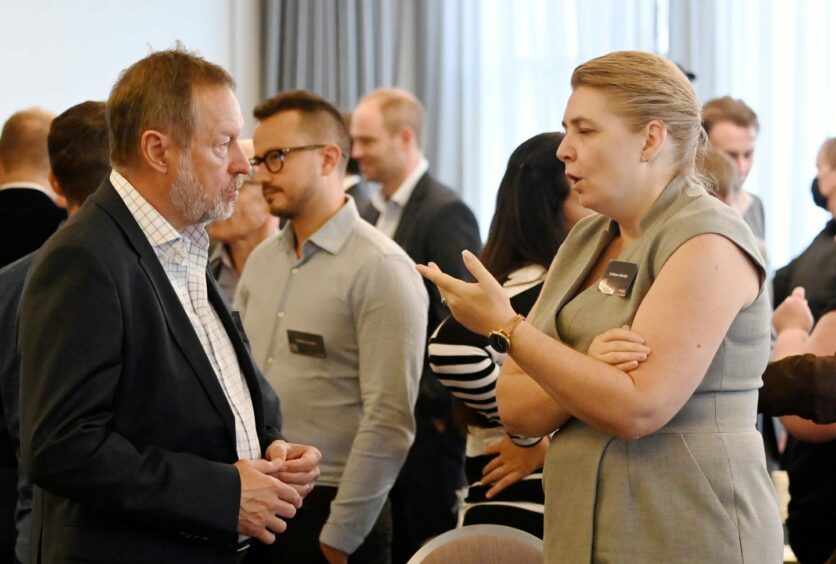
Mr Wood’s main takeaway from the first session of FOS 2022 was that the Government need to set a clear vision for the energy transition.
He also believes ministers must work with the private sector to ensure the UK produces sufficient power during the energy transition.
Mr Wood added: “Why not short term and why not national? Why not slow down on the green shift?
“My answer to that is because building energy resilience as quickly as possible, is not only good for future industrial growth, it will also ensure we can stop Europe’s energy becoming a pawn in Putin’s power games or anyone else’s geopolitics.”
On the energy transition, Mr Wood explained that energy security in the UK “depends on us making rapid progress” in renewables.
He added: “We are in the middle of an energy crisis and a cost of living crisis but we can’t forget we also have a climate crisis which is not going to go away.”
Energy Transition Panel
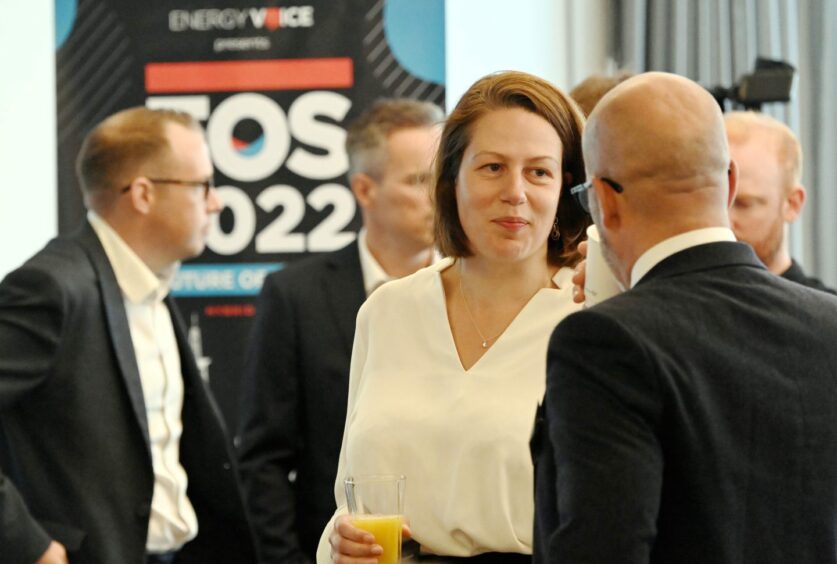
Following the ambassador’s keynote speech, FOS held a panel on energy security, following up on the points made at the start of the event.
The energy security panel was chaired by HSE officer for Offshore Energies UK (OEUK) Mark Wilson.
During the session, Yvonne Telford, senior analyst at Westwood, Professor Alex Kemp, a petroleum economist at Aberdeen University, David Clark, chief executive of Vysus Group, and Mr Wood fielded questions on the UK’s energy security and the impacts of the transition to net zero.
Each speaker provided key takeaways on the topic of the energy transition:
- Ms Telford spoke of how the UK should keep in mind that renewables are not 100% efficient, and that storage and the lessons learned from oil and gas will be a key component going forward. She said renewables, hydrogen, carbon capture and wind all need to head in the same direction and “then, hopefully, the investment community can get behind it and all the various aspects that we need for the future, for sustained, secure and affordable energy.”
- Professor Kemp explained that the issues in the gas and electricity markets “are likely to be with us for quite some time”. He added that even if the war between Russia and Ukraine stops, sanctions against Russia will continue so the “prospect for a volatile electricity and gas price remain” so the UK should prepare. On legislation and infrastructure, Professor Kemp says they “were designed for a different era” and, with net zero now a priority, there is a need to revise the incentives to bring the electricity infrastructure up to date.
- Mr Clark supported Ms Telford’s point. He said: “There is no one solution, the world has rapidly come to the realisation that the oil and gas sector is needed. We need to keep the lights on in the near term and help supply energy. It is going to take investment and continued development of some oil and gas assets, while at the same time we move towards a decarbonised economy and energy infrastructure.” However, the Vysus boss did note that the politics would be “complex, difficult” and fluctuate rapidly, but the long term direction is clear. “The world absolutely understands where we need to get to over the next one, two and certainly three decades,” he concluded.
Mr Wood also shared a Norwegian phrase that he believed fits the energy transition – “we must be able to have several thoughts in our heads at the same time.”
Recommended for you


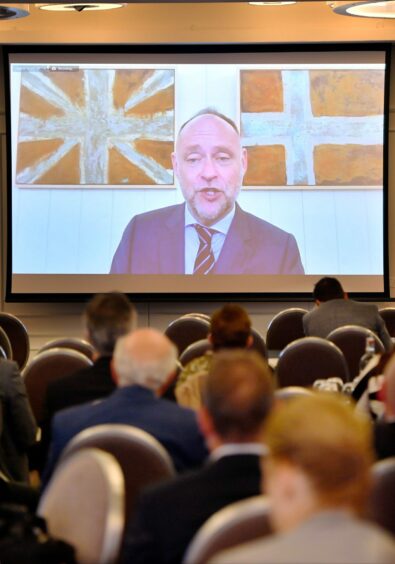 © Supplied by Kami Thomson / DC Th
© Supplied by Kami Thomson / DC Th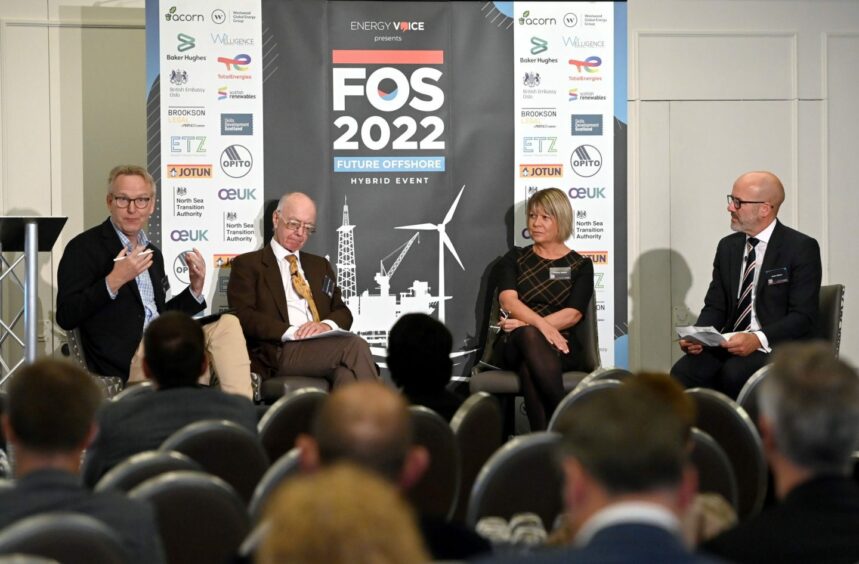 © Supplied by Kami Thomson / DC Th
© Supplied by Kami Thomson / DC Th